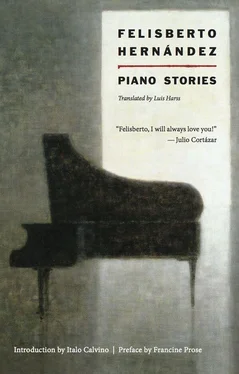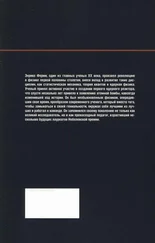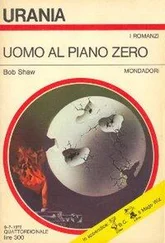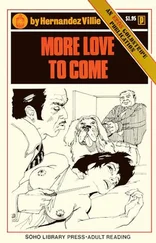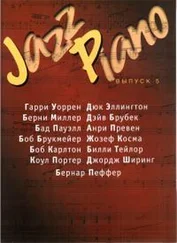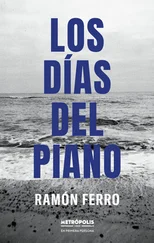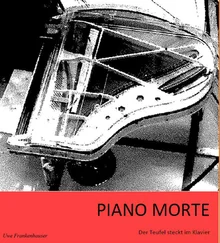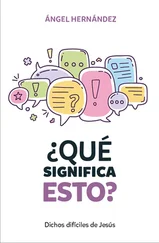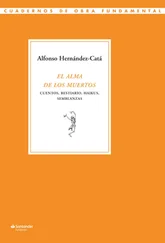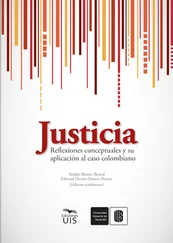Felisberto Hernandez - Piano Stories
Здесь есть возможность читать онлайн «Felisberto Hernandez - Piano Stories» весь текст электронной книги совершенно бесплатно (целиком полную версию без сокращений). В некоторых случаях можно слушать аудио, скачать через торрент в формате fb2 и присутствует краткое содержание. Год выпуска: 2014, Издательство: New Directions, Жанр: Современная проза, на английском языке. Описание произведения, (предисловие) а так же отзывы посетителей доступны на портале библиотеки ЛибКат.
- Название:Piano Stories
- Автор:
- Издательство:New Directions
- Жанр:
- Год:2014
- ISBN:нет данных
- Рейтинг книги:4 / 5. Голосов: 1
-
Избранное:Добавить в избранное
- Отзывы:
-
Ваша оценка:
- 80
- 1
- 2
- 3
- 4
- 5
Piano Stories: краткое содержание, описание и аннотация
Предлагаем к чтению аннотацию, описание, краткое содержание или предисловие (зависит от того, что написал сам автор книги «Piano Stories»). Если вы не нашли необходимую информацию о книге — напишите в комментариях, мы постараемся отыскать её.
Piano Stories
Piano Stories — читать онлайн бесплатно полную книгу (весь текст) целиком
Ниже представлен текст книги, разбитый по страницам. Система сохранения места последней прочитанной страницы, позволяет с удобством читать онлайн бесплатно книгу «Piano Stories», без необходимости каждый раз заново искать на чём Вы остановились. Поставьте закладку, и сможете в любой момент перейти на страницу, на которой закончили чтение.
Интервал:
Закладка:
One afternoon my mother said she was taking me to visit a grandmother who lived in the port area, and that I’d see a trolley. And yet I had misbehaved that morning: I’d been sent to the store to get a box of starch but instead I’d bought loose starch, and gotten scolded. A bit later I’d been sent with some change to buy mate , and since I’d insisted it had to be in a box, the grocers — who were friends of the family — had put it in a shoebox, but I’d done something else wrong: I’d come home with the change and gotten scolded for not paying. Next I’d been sent with paper money for some noodles and I’d remembered to pay — but I hadn’t accepted the change so I wouldn’t be scolded again. At home they were alarmed when I didn’t have the change and they had sent me back for it. The grocers scribbled my mother a note, which had seemed to calm her, at last. I had peeked and it said: “The change is in the noodles.”
That afternoon all the women in the house tried to fasten a big starched collar on me. The only one who could handle the metal buttons that attached it to my shirt was another grandmother — not the one who lived in the docks and wore the pin with the green heart on her breast. This grandmother had hot, pudgy fingers, and when she stuck them inside the collar to fasten it, she pinched my neck and I choked a couple of times and nearly threw up.
Out in the street, the sun made my patent leather shoes shine and I hated scuffing them on the stones as I hopped along after my mother, who was leading me by the hand, almost running. But I was happy, and when she didn’t answer my questions I answered them myself, until suddenly she said:
“Will you stop your chattering! You sound like the loony with the seven horns.”
A moment later we passed the loony’s place. It was an ancient house with crumbling walls. Tied with wires to a window grille were some cans through which the loony bellowed at the people who went by. He was a large fat man in a checkered shirt. Sometimes his tiny, thin wife could be seen trying to make him shut up, but in a minute he was clinging to the bars again, shouting himself hoarse.
Then we went by the butcher shop, where I spent entire mornings waiting in lines, in a silence broken only by a loud thrush that kept singing the same boring song.
At the foot of the Hill was the street where you caught the horse-drawn tram. It came blowing its horn, with a clatter of hooves, rattling chains and the sound of the long whip snapping over the horses’ heads. I used to kneel on one of its two long benches to look out the window. After a long while I had to hold my nose as we went by the packing houses near a stream. Sometimes, rumbling over the bridge, I forgot to hold my nose and caught a whiff of the smell. That afternoon we got off at the Paso Molino stop and went into a candy shop, where my mother chatted with the lady who owned the place. After a long while, the lady said:
“Your boy’s looking at the candy.”
And, pointing to the different jars, she asked me:
“Would you like one of these? How about these here?” I told my mother I wanted the lid of a candy jar. They both laughed and the lady brought me the lid of another jar that had broken recently. My mother didn’t want me to carry it in the street, but the lady wrapped it up and tied it with a string to which she attached a small wooden handle.
It was evening when we left the shop, and in the middle of the street I saw a lit gallery. As my mother led me toward it, I admired its colored windows. She was telling me it was a trolley, but coming on it from behind I went on thinking it was a gallery. At that moment a bell clanged and the “gallery” let out a loud sigh and slowly heaved forward. At first it barely moved and the people I could make out inside sat still as dummies in a show window, but we didn’t reach it in time and soon it was far away, slipping around a bend between some trees.
My grandmother’s house was on a street near the docks. We crossed a long patio, after which we had to climb some stairs, and then we went through the dining room, where there was a table with a platter full of pastries. My mother had instructed me not to ask for one, so I told my grandmother:
“If you’ll give me one I’ll ask, if not I won’t.”
My grandmother was amused, and one of the times she hugged and kissed me I saw the green heart on her breast and asked her for it, but she didn’t give it to me. Before dinner I was allowed to play with a little girl named Ivonne. The girl’s mother wore a hat made of newspaper and her face and kerchief were sprinkled with tiny white feathers.
That night before going to sleep I saw a small bright ladder climbing the wall by the bed: it was the light coming in the slats of the shutters. Then I slept through the noise that got everyone else up in the middle of the night, when the lid of the candy jar slipped out from under my pillow and crashed on the floor. The next morning, while I drank my milky coffee, I kept hearing a strange screech and I was told it was Ivonne hiccuping — she seemed to do it on purpose. After breakfast she invited me to see a dead man in a room across the back patio. Her mother didn’t want to let her go because of her hiccups. I looked at the mother’s paper hat: the feathers, that morning, were purple. Then I thought of the dead man. Ivonne was saying:
“He’s all right, Mom, we know him. It’s that little old man who used to sell chickens.”
She led me by the hand and I hung on, afraid to let go. The little old man was alone, under a white sheet. Ivonne not only went on hiccuping and screeching but wanted to blow out all the candles around the coffin. Suddenly her mother came in, grabbed her by the arm, and dragged her out at top speed and me with her, still clutching her hand.
That same morning my grandmother gave me the green heart — and a few years ago these old memories were joined by some new events.
I was in a city in Argentina where the man in charge of organizing my concerts had done everything wrong from the beginning, until in the end nothing could be done. Meanwhile I’d had time to sample the downtown hotels from top to bottom and landed in a doubtful neighborhood in a suburb, where a friend rented a room. My friend’s parents had sent him a bed, and he let me have the top mattress. The nights were very cold and I had spent most of my money buying old newspapers, which I spread over a thin blanket and covered with an overcoat lent to me by the concert organizer. One night I woke my friend with a wild shriek. I also woke up and found myself holding a pillow against the wall: I’d been dreaming there was a hole in the wall and a smiling loony had stuck his head through it, wearing a hat made of newspaper. After thinking about it for a while, forcing myself to stay awake — I was afraid of going back to sleep and having the nightmare return — I remembered the hat worn by Ivonne’s mother.
I was so depressed, a few evenings later, strolling through the lights downtown, that suddenly I decided to pawn the green heart and go to a movie. After the show that night, I worked up the courage to write another friend I had in Buenos Aires asking for a loan. I already owed this friend a lot of money, but I could risk it because now the arrangements for my next concert, in a neighboring town, were looking good. That same night I thought of the lady with the newspaper hat again and decided to find out from my mother, who might know, what the hat meant and why the lady was always sprinkled with feathers. In my letter I mentioned remembering the lady always picking at something on her lap, as if plucking a bird.
When the money came I redeemed the green heart and moved on to the neighboring town, where everything went well from the start and I was able to stay in a comfortable hotel. I had been given a room with three beds, a double and two singles, all to myself, with permission to choose my bed. So, after a somewhat excessive dinner, I took the double bed and piled all the blankets from the other beds on it. The furniture in the room was dark with age and the mirrors were blurred and almost blind to the light.
Читать дальшеИнтервал:
Закладка:
Похожие книги на «Piano Stories»
Представляем Вашему вниманию похожие книги на «Piano Stories» списком для выбора. Мы отобрали схожую по названию и смыслу литературу в надежде предоставить читателям больше вариантов отыскать новые, интересные, ещё непрочитанные произведения.
Обсуждение, отзывы о книге «Piano Stories» и просто собственные мнения читателей. Оставьте ваши комментарии, напишите, что Вы думаете о произведении, его смысле или главных героях. Укажите что конкретно понравилось, а что нет, и почему Вы так считаете.
